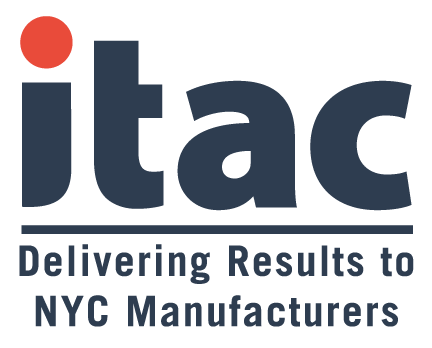Apprenticeship Program Offers More Career Pathways – Helps Close the Skills Gap.
A manufacturing apprenticeship pilot program in Florida is taking a hybrid approach that replaces the traditional classroom element with competency-based, on-demand e-learning. This Apprenticeship Program offers more career pathways and helps close the skills gap. It could help bring the apprenticeship career development tool into the digital age and be a breakthrough for manufacturers who are struggling to fill their skilled worker pipeline. The National Association of Manufacturers, based on a Manufacturing Institute and Deloitte study, estimates that by 2028 manufacturers will need to fill 4.6 million jobs. Unless we take the right steps now, more than half of those jobs could go unfilled due to the industry’s skills gap.
Apprenticeship programs for decades have followed a similar core model—an entry-level paid job at a manufacturer with on-the-job training and workplace mentors, and classroom learning at a community college or technical school. The model has been a win-win for employers and employees, with apprentices having higher retention rates as they develop skills and achieve technical credentials while earning, on average, about $300,000 more in career earnings.
Despite its proven return on investment, the apprenticeship concept has not seen a rapid expansion. Apprenticeships have been occupational in nature, so some manufacturers have been hesitant to invest in workers that have more mobility and may change jobs. Some workers have not wanted to commit to a specific line of work. It also has been a challenge to get staff members to commit to one to four years of part-time classroom work in addition to their full-time job and other lifestyle and logistical barriers.
The Industrial Manufacturing Technician (IMT) Apprenticeship Program aims to provide greater access to potential participants while meeting demand for “learn while you earn” and, most important to the Generation Z population, a clear path to career advancement.
Improved access could tap into larger talent pools
The IMT Apprenticeship Program differs from a traditional apprenticeship because the “in-class” portion has been replaced with on-demand e-learning. It also is competency-based instead of time-based.
The program could be particularly impactful as a career pathway to higher-skilled positions for women and underrepresented populations for whom traditional classroom training programs may pose attendance difficulties due to lack of transportation and inflexible time constraints. For example, a young parent might previously have had to deal with childcare issues not only for a full-time job but also to accommodate evening classes at a local community college. Now she or he could do the curriculum at home whenever it is convenient, such as nights and weekends.
“This program is a gamechanger for small and medium-sized manufacturers and, in particular, for those with facilities in rural communities without access to traditional vocational training centers and for families that don’t have the ability to make time to advance their education due to inflexible time constraints,” says Mary Ann Pacelli, program manager for Workforce Development, Extension Services at National Institute of Standards and Technology (NIST) Manufacturing Extension Partnership (MEP). “IMT was developed with that in mind to help give equal opportunity for all who want to advance their careers.”
Program designed to be adaptable for a variety of industries
The program was developed by the Florida Advanced Manufacturing Workshop Leadership Council (AMWLC), which collaborated with workforce boards and regional manufacturing associations from around the state to develop a more flexible, competency-based program. The sponsoring organization is FloridaMakes, a statewide, industry-led, public-private partnership operated by an alliance of regional manufacturing associations and part of the MEP National Network.
The one-year IMT program requirements include:
- Completion of 200 nonworking hours of online education. The curriculum is provided by the Manufacturing Skill Standards Council training program and features simulation e-learning technologies.
- 2,000 hours of on-the-job training
- Tuition is $950 and is paid by the employer. Tuition reimbursement is often available to manufacturers through grants and scholarships from a variety of organizations.
The curriculum material is relevant and adaptable for a variety of manufacturing industries, including electronics assembly, food processing, metal fabrication, and biomedical production. It’s also suitable for many manufacturing settings and companies large and small. This is a great way to upskill someone already in place. Other employer benefits include:
- Improve entry-level skills of employees.
- Address staffing gaps, especially in advance of key staff aging out.
- Establish a foundation for career pathways, which helps retention and recruitment.
In addition to the flexibility with on-demand classes, apprentices also benefit from:
- Structured wage increases in as little as 90 days as they become more skilled
- Stackable credentials, beginning with a nationally recognized Industrial Manufacturing Technician certificate and eligibility to take the Manufacturing Skill Standards Council assessment tests for the Certified Production Technician certification
- The option to earn up to 15 college credits
Online component a critical component for stakeholders
The AMWLC set out to design a low-touch statewide program. But developing large-scale workforce programs can be a challenge given the needs of different industry sectors.
To address this, the AMWLC used a sector strategy led by multiple manufacturing companies that were looking for competency-based learning vs. time-based learning, and wanted a more condensed time frame for an apprenticeship, as well as something flexible for the participants.
“The use of online training curricula was deemed a critical component when we were in the process of designing this program,” says Roy Sweatman, chairman of the AMWLC and CEO of Southern Manufacturing Technologies. “It is short enough to feel attainable and flexible enough to be used in almost any manufacturing business.”
The council worked closely with the 12 RMAs and the CareerSource Florida network, which is 24 locally based workforce boards. The consortium also included Veterans Florida, CareerSource Florida, Apprenticeship Florida, the Florida Department of Education’s Division of Career and Adult Education, and the Manufacturing Skill Standards Council.
A faster development path for promising newcomers
Launching any large-scale initiative in a pandemic is a challenge. But small and medium-sized manufacturers already have had to deal with disruptions related to remote work, virtual training, social distancing on the shop floor, and supply chain interruptions.
But everything changes at the speed of opportunity. In this case, some manufacturers could have furloughed workers do the curriculum portion of the apprenticeship sooner and the on-the-job training hours later. For manufacturers that have seen increases in production, it’s a chance to put promising newcomers on a faster development path.
The reality is that any training initiative helps the productivity of employees. Evolving the apprenticeship model has promising potential across the manufacturing landscape. To learn more about how innovative workforce training programs can help your business, connect with the experts at your local MEP Center. Contact ITAC for NYC area.
This insight is from Quality Digest. To read the full article click here. A big thank you to Tina Berger, director of talent development at FloridaMakes, for her work on the article.






